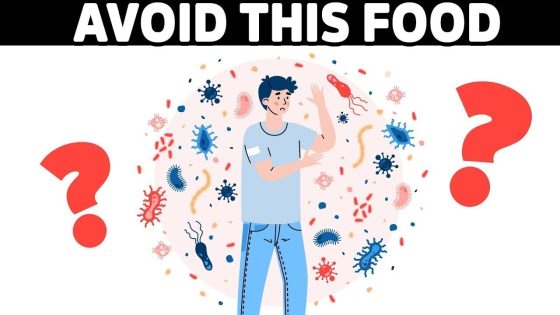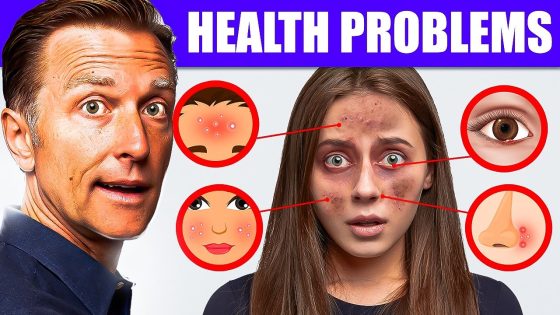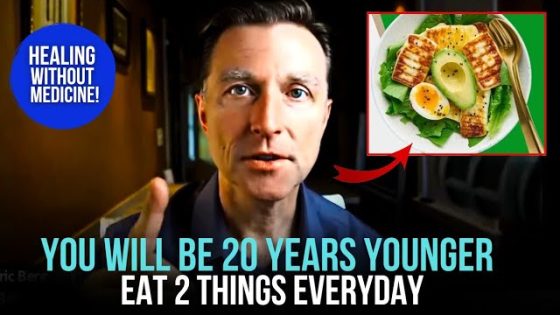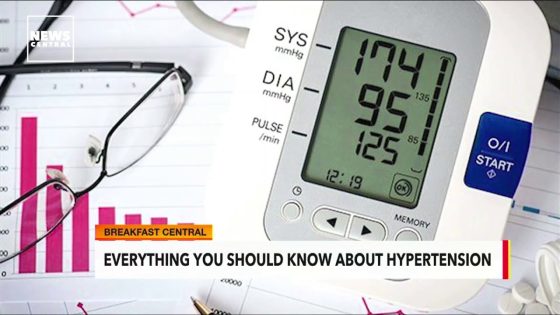If you or a loved one is trying to improve Alzheimer’s disease symptoms, it’s crucial that you avoid this food—do you know what it is?
00 Introduction: Improving Alzheimer’s symptoms
15 What is Alzheimer’s disease?
45 Insulin and Alzheimer’s disease
4:42 Fix insulin resistance and improve cognitive function
8:42 Learn more about what to eat to support a healthy body!
In my opinion, what you eat is the most important thing that influences dementia or Alzheimer’s disease. There is one food I believe you have to avoid if you’re trying to improve symptoms of Alzheimer’s disease, and that is refined carbohydrates.
Surprisingly, insulin is actually neuroprotective, and carbs increase insulin. If you’re deficient in insulin, your risk for amyloid plaquing goes up.
But this doesn’t mean you should consume more carbs. A high-carb diet is associated with high blood sugar, and people with high blood sugar or diabetes have an increased risk of Alzheimer’s disease.
When your insulin is too high, your body starts protecting itself against excess insulin, leading to insulin resistance. Insulin resistance is a deficiency of insulin inside the cells. It’s important to have just the right amount of insulin.
Refined carbs and sugar can also create brain inflammation. Not only that but sugar and refined carbs can destroy the energy sources for neurons and create oxidation and free-radical damage while also decreasing antioxidants.
This is why it’s key to fix insulin resistance. If you fix insulin resistance, the neurons can get the level of insulin they need for neuroprotection and to help decrease inflammation.
How to support healthy insulin levels:
1. Get on the keto diet (run your body on ketones)
2. Do intermittent fasting
3. Do OMAD
4. Consume nutrient-dense foods
5. Decrease stress
Dr. Eric Berg DC Bio:
Dr. Berg, age 57, is a chiropractor who specializes in Healthy Ketosis & Intermittent Fasting. He is the author of the best-selling book The Healthy Keto Plan, and is the Director of Dr. Berg Nutritionals. He no longer practices, but focuses on health education through social media.
Follow Me On Social Media:
Facebook: https://bit.ly/FB-DrBerg
Instagram: https://bit.ly/IG-DrBerg
Anchor: https://bit.ly/Anchor-DrBerg
TikTok: https://bit.ly/TikTok-DrBerg
Disclaimer:
Dr. Eric Berg received his Doctor of Chiropractic degree from Palmer College of Chiropractic in 1988. His use of “doctor” or “Dr.” in relation to himself solely refers to that degree. Dr. Berg is a licensed chiropractor in Virginia, California, and Louisiana, but he no longer practices chiropractic in any state and does not see patients so he can focus on educating people as a full time activity, yet he maintains an active license. This video is for general informational purposes only. It should not be used to self-diagnose and it is not a substitute for a medical exam, cure, treatment, diagnosis, and prescription or recommendation. It does not create a doctor-patient relationship between Dr. Berg and you. You should not make any change in your health regimen or diet before first consulting a physician and obtaining a medical exam, diagnosis, and recommendation. Always seek the advice of a physician or other qualified health provider with any questions you may have regarding a medical condition.
#keto #ketodiet #weightloss #ketolifestyle
Thanks for watching! Follow these tips if you or a loved one is trying to improve Alzheimer’s disease symptoms. I’ll see you in the next video.















Qdxvul
2 months agobuy atorvastatin generic lipitor order online buy atorvastatin cheap
Yzndva
2 months agoatorvastatin 10mg without prescription oral atorvastatin 10mg atorvastatin 80mg usa
Fqmmas
2 months agoorder atorvastatin 20mg pills cost lipitor 10mg buy lipitor 20mg sale
Vjdozh
2 months agobuy lipitor generic buy lipitor pills purchase atorvastatin online cheap
Weehvn
2 months agoatorvastatin 20mg brand lipitor 80mg pill order atorvastatin 20mg online cheap
Zjykpd
2 months agolipitor 10mg oral order lipitor 10mg generic order atorvastatin 10mg pills
Bxommt
2 months agoatorvastatin brand purchase lipitor for sale atorvastatin 80mg uk
Gfkqkw
2 months agoorder lipitor 80mg online cheap atorvastatin for sale online buy atorvastatin 80mg pill
Njcagy
2 months agobuy atorvastatin 40mg online atorvastatin 40mg ca buy lipitor 10mg pill
Wvnmmx
2 months agobuy generic lipitor over the counter order atorvastatin 10mg generic how to get lipitor without a prescription
Upnjnn
2 months agolipitor 10mg sale buy lipitor 20mg generic order lipitor 20mg online
Jcftul
2 months agobrand lipitor 80mg atorvastatin 40mg generic purchase lipitor pills
Vaokug
2 months agobuy atorvastatin 40mg generic lipitor 10mg for sale atorvastatin 80mg cost
Lmwoal
2 months agolipitor 40mg cheap buy generic lipitor for sale lipitor 10mg without prescription
Yuxvkv
2 months agobrand lipitor 20mg order atorvastatin sale buy lipitor 10mg online cheap
Cbokym
2 months agobuy atorvastatin 10mg online cheap purchase atorvastatin sale lipitor 40mg cheap
Swluvh
1 month agocipro over the counter – ethambutol 1000mg for sale generic augmentin 625mg
Vaqjho
1 month agociprofloxacin 500mg oral – buy myambutol generic order generic amoxiclav
Niblze
1 month agociplox order online – chloramphenicol pills erythromycin 500mg brand
Corsac
1 month agoflagyl online order – cost metronidazole 400mg buy azithromycin generic
Ilnyhq
1 month agoivermectin 3mg for humans for sale – axetil brand tetracycline over the counter
Ydkvwl
1 month agovaltrex 500mg ca – cost starlix 120 mg buy acyclovir for sale
Aunayg
1 month agopurchase ampicillin online doxycycline brand purchase amoxil online
Dqdxyu
1 month agowhere can i buy flagyl – purchase cefaclor without prescription purchase azithromycin without prescription
Kaytuu
1 month agoorder furosemide online cheap – captopril online order capoten 25mg without prescription
Be the first to comment